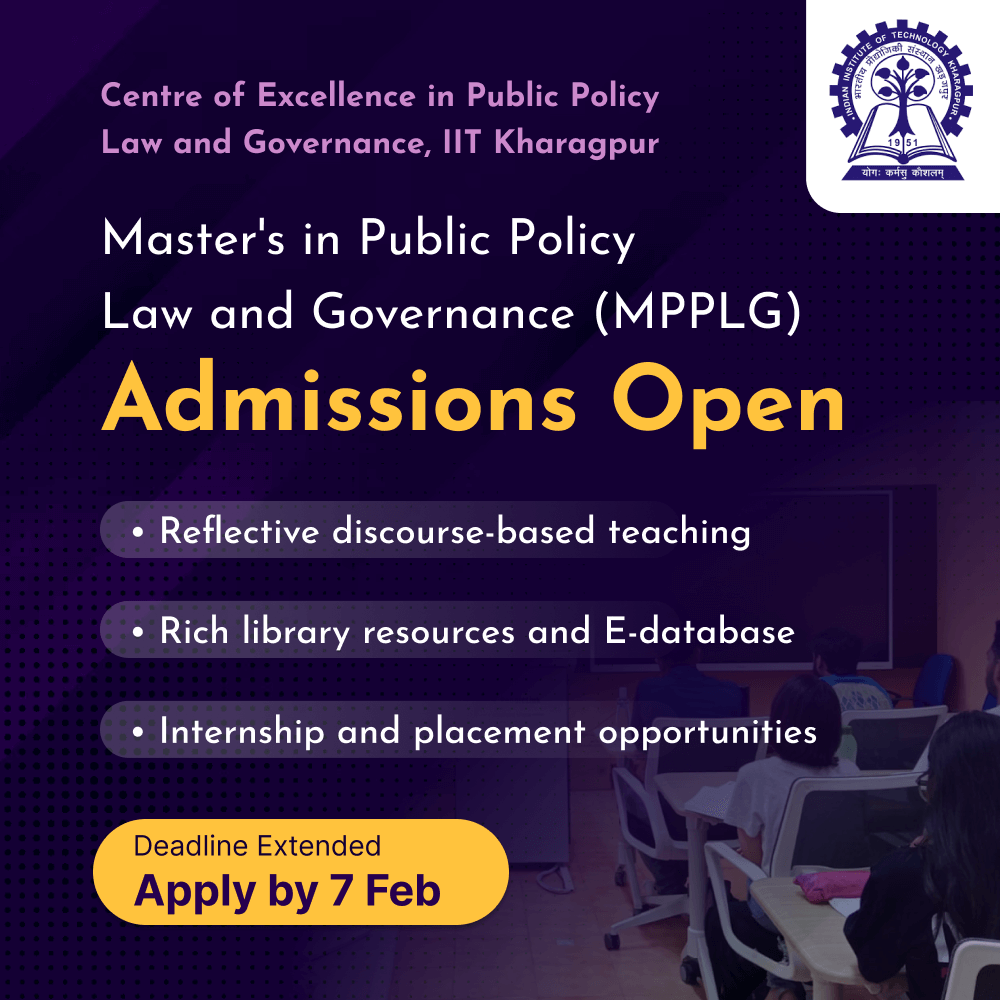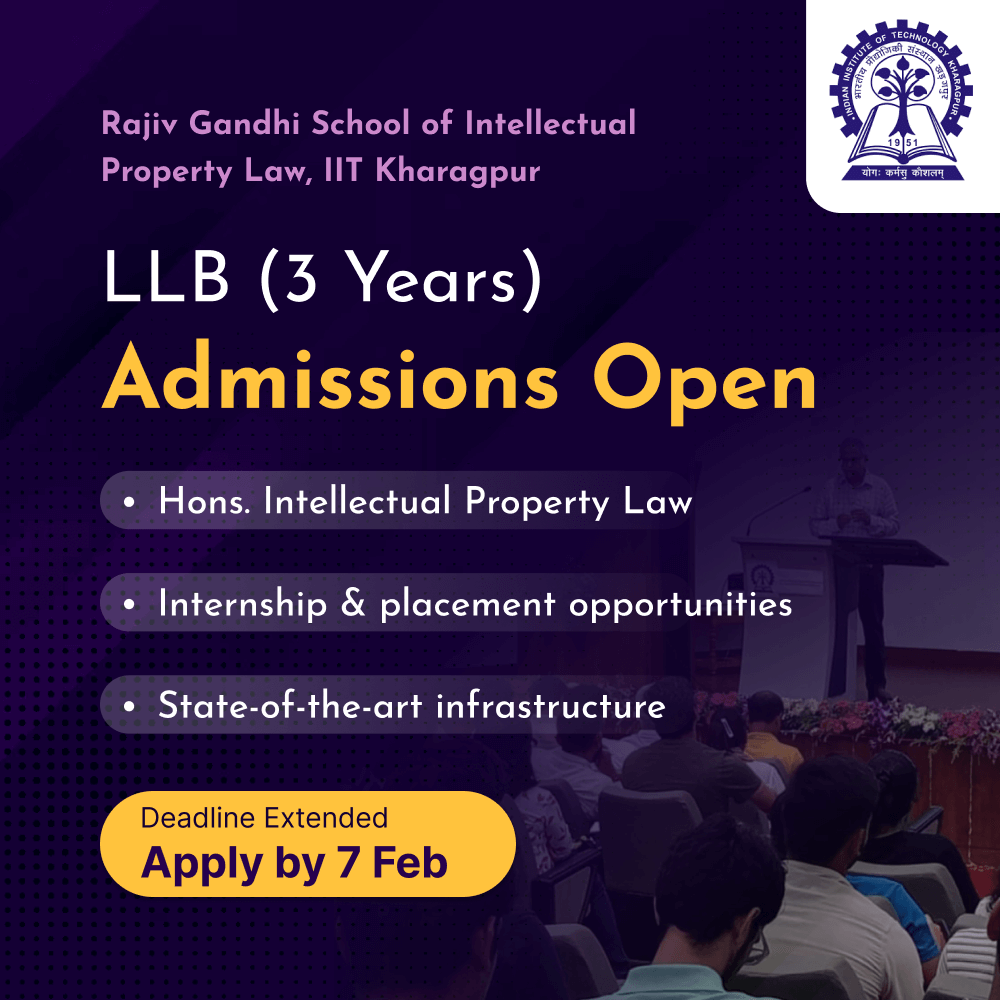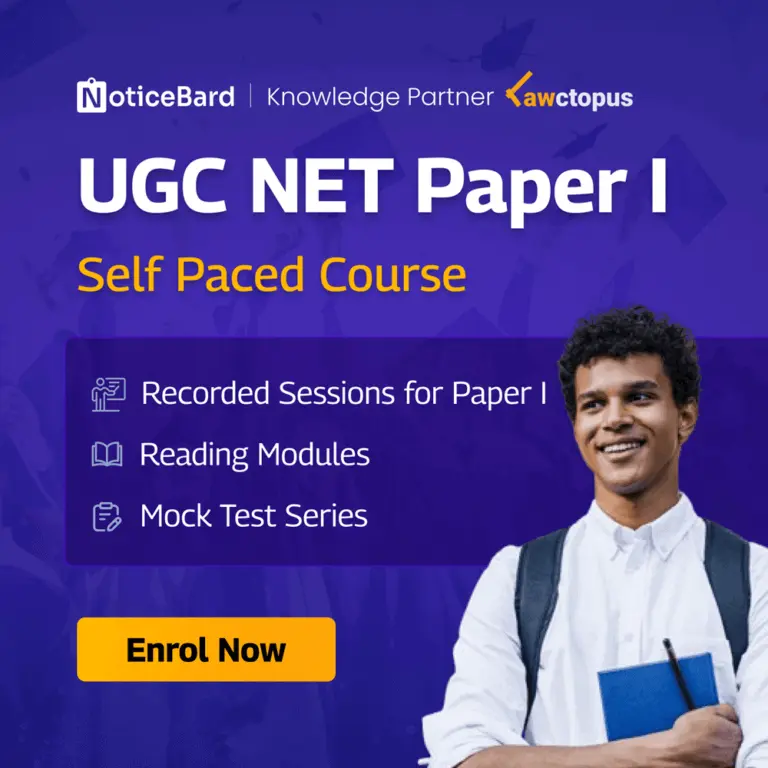Join the UOR International Conference 2025 on Decolonising Literary Studies. Open to scholars from literature, law,engineering, and more. Submit your paper today!
About the Conference
The University of Rajasthan (UOR), Jaipur, is set to host the highly anticipated International Conference on Decolonising Literary and Cultural Studies on February 28 and March 1, 2025. This groundbreaking event aims to challenge Eurocentric frameworks in literature and academia, fostering a more holistic approach rooted in Indic philosophies and traditions. Scholars, educators, and students worldwide are invited to participate in critical discussions that will reshape the study of literature, culture, and philosophy in India.
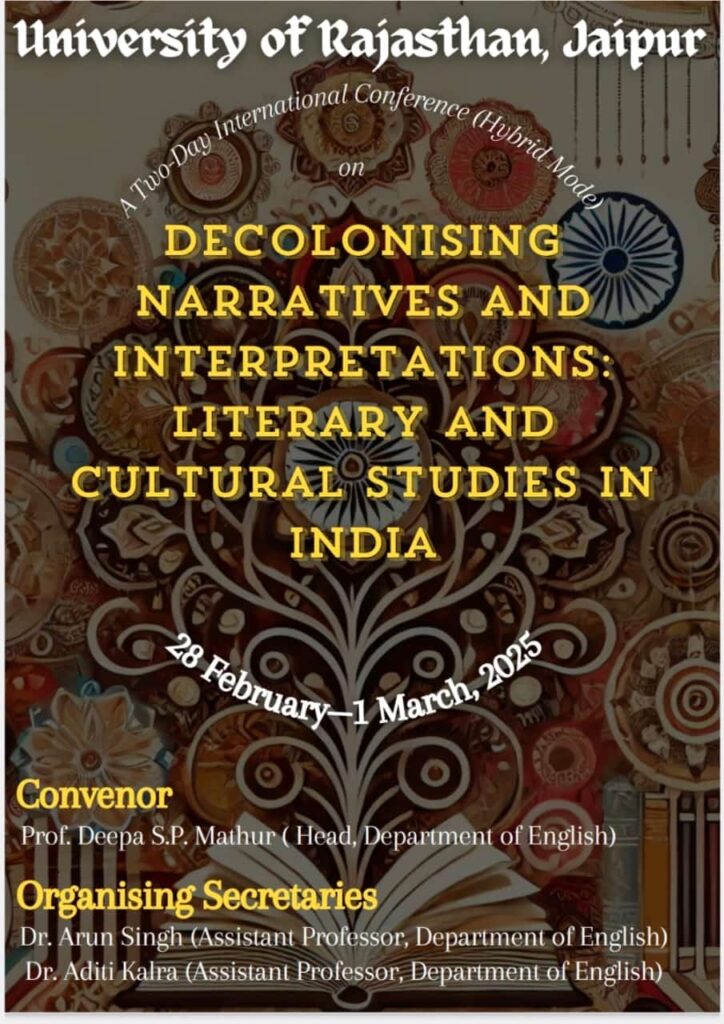
Eligibility
The conference is open to UG, PG Students, Research Scholars, Teachers and Academicians.
Mode
Hybrid
Offline Venue
Malviya Mission Teacher Training Centre (MMTTC), JLN Marg, Jaipur, Rajasthan 302004
Timeline
- Deadline for Abstract Submission: February 20, 2025
- Deadline for Full Paper Submission: February 25, 2025
- Conference Dates: February 28 and March 1, 2025
Event Highlights
- Interactive Panel Discussions with leading scholars.
- Multilingual Paper Presentations (English & Hindi accepted).
- A Classic-Indic Movie Screening at the end of Day 2.
- Traditional Rajasthani Feast for participants.
Why This Conference Matters?
For centuries, English literature and cultural studies in India have been shaped by colonial legacies that marginalised indigenous knowledge systems. The UOR International Conference 2025 seeks to dismantle these frameworks by:
- Reevaluating English Studies as a colonial tool and proposing alternative methodologies.
- Highlighting Indic Philosophies such as Dhvani (suggestion), Rasa (aesthetic emotion), Purusharthas (the four aims of life), Dharma (righteous duty), and Rta (cosmic order) in literary interpretation.
- Challenging Secularist and Marxist Discourses that have dominated Indian academia and cultural narratives.
- Exploring Decolonial Approaches to cinema, folklore, translation studies, and oral traditions.
Multidisciplinary Approach
While the core themes of this conference focus on literature and cultural studies, its relevance extends far beyond the humanities. We invite scholars and practitioners from various disciplines, including:
- Law: The impact of colonial legal systems on India’s jurisprudence and indigenous legal traditions.
- Medicine & Health Sciences: Decolonising medical education by integrating Ayurveda, Yoga, and traditional healing systems.
- Engineering & Technology: The role of traditional knowledge in sustainable engineering, Vedic mathematics, and Indic sciences.
- Economics & Business: How colonial economic policies shaped modern India and the revival of indigenous economic models.
- Political Science & International Relations: The geopolitical impact of colonialism and strategies for intellectual sovereignty.
This conference is an opportunity for scholars from diverse fields to explore how decolonisation can transform research, policy, and pedagogy in their respective disciplines.
Sub-Themes
The seminar unbiasedly emphasises—but is not limited to—the following themes to present a balanced account of intellectual ideas and perspectives.
- Reclaiming Cultural Indigeneity,
- Incorporating the Vedic Knowledge System,
- Decolonising Literary Theory,
- Coloniality, Rashtra Dharma, and Indigeneity in India.
- Decolonial Methodologies and Indic Revival,
- Rethinking Secularist Hierarchies,
- Revitalising Indic Ethics in Literature,
- Critiquing Marxist Historiographies,
- Highlighting Indigenous and Folk Literary Traditions,
- English as a Tool for Indic Revival,
- Coloniality, Rashtra Dharma, and Indigeneity in India,
- Indic Revival in the Classroom,
- Globalising the Vedic Legacy,
- Decolonising Literary Interpretation,
- Rewatching Indian Cinema and Its Decolonisation,
- Environment and Decoloniality,
- Unlearning conventional reading and decolonising the postcolonial text,
- Regional translations of English canon,
- Intersemiotic translation of English canon,
- Folklore as a decolonising tool,
- Locating Bahujan discourse in India and Diaspora,
- Indigenous Studies in Shakespeare,
- Cultural Nativism for Decolonisation,
- Canonising Orality in India,
- De-hegemonizing Indian Folk Arts,
- Western critical discourse and Indian Feminisms,
- Indian goddesses and women’s discourse,
- Indian Neetishastra and the form(s) of dissent,
- The concept of Sacred in India,
- Pinpointing and analysing divisive and separatist discourses/theories.
Submission Guidelines
- Abstract length: 200 words.
- Keywords: 6-7 words.
- Full paper length: About 4500 words.
- Font style & size: Times New Roman, 12pt.
- Line Spacing: 1.5.
- Citation Style: MLA 9th Edition.
- File Type: .doc.
How to Submit?
Submit your abstracts to: conferenceenglish2025[at]gmaildot]com
How to Register?
Interested participants can register through this link.
Deadline
The deadline for registration and submission of extracts is February 20, 2025.
Contact
- Email: conferenceenglish2025[at]gmail[dot]com
- Coordinators: Navrtan Jat (+91 8003673237), Vishwajeet (+91 9351998109)



![CfP: International SARC Conference on Industrial and Production Engineering (ICIPE) at Pondicherry [June 1st]: Submit by May 16](https://cse.noticebard.com/wp-content/uploads/sites/23/2025/04/new-one-27-5.jpg)
![CfP: International Conference on Renewable, Environment and Agriculture at Madurai [Aug 1st]: Submit by July 16](https://cse.noticebard.com/wp-content/uploads/sites/23/2025/04/new-one-27-4.jpg)
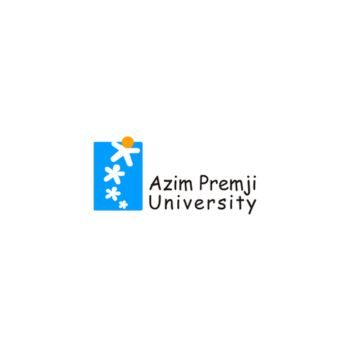
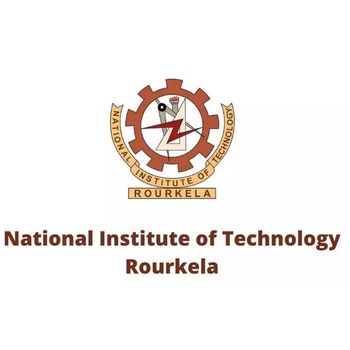
![IEEE ICWITE 2025 Summit at Bangalore [Sep 26-27]](https://cse.noticebard.com/wp-content/uploads/sites/23/2025/05/new-one-61.jpg)
